联合国亚太经社会
U.N. Economic and Social Commission for Asia and the Pacific
组织领域:经济金融与贸易 总部:Bangkok, Thailand
组织性质:政府间 是否有驻华办事处:否
官方网站:http://www.unescap.org/
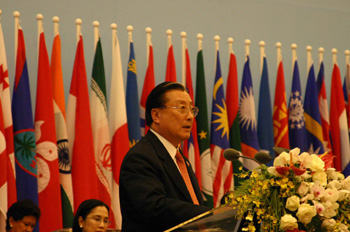
简介:
Mission
ESCAP is committed to a resilient Asia and the Pacific founded on shared prosperity, social equity and sustainability. Our vision is to be the most comprehensive multilateral platform for promoting cooperation among member States to achieve inclusive and sustainable economic and social development in Asia and the Pacific.
Introduction
The United Nations Economic and Social Commission for Asia and the Pacific (ESCAP) is the regional development arm of the United Nations for the Asia-Pacific region. Made up of 53 Member States and 9 Associate Members, with a geographical scope that stretches from Turkey in the west to the Pacific island nation of Kiribati in the east, and from the Russian Federation in the north to New Zealand in the south, the region is home to 4.1 billion people, or two thirds of the world’s population. This makes ESCAP the most comprehensive of the United Nations five regional commissions, and the largest United Nations body serving the Asia-Pacific region with over 600 staff.
Established in 1947 with its headquarters in Bangkok, Thailand, ESCAP works to overcome some of the region’s greatest challenges by providing results oriented projects, technical assistance and capacity building to member States in the following areas:
Macroeconomic Policy, Poverty Reduction and Financing for Development
Trade, Investment and Innovation
Transport
Environment and Development
Information and Communications Technology and Disaster Risk Reduction
Social Development
Statistics
Subregional activities for development
Energy
ESCAP promotes rigorous analysis and peer learning in our core areas of work; translates these findings into policy dialogues and recommendations; and provides good development practices, knowledge sharing and technical assistance to member States in the implementation of these recommendations.
链接:http://gj.ncss.cn/org/HoJFBpGX3KC7oWXGt73YgL.html(职位信息在页面左下角,下同)
世界知识产权组织
World Intellectual Property Organization
组织领域:法律总部:Geneva, Switzerland
组织性质:政府间 是否有驻华办事处:是
官方网站:http://www.wipo.int/portal/en/
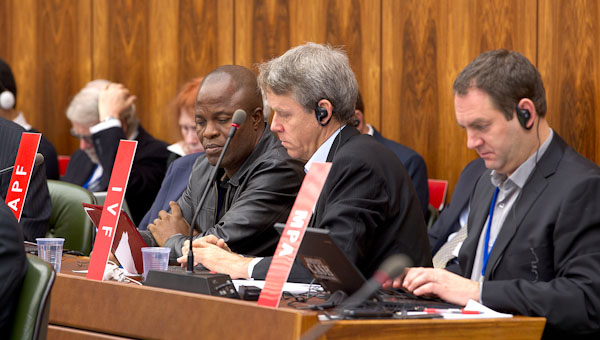
简介:
Mission
Our mission is to lead the development of a balanced and effective international intellectual property (IP) system that enables innovation and creativity for the benefit of all. Our mandate, governing bodies and procedures are set out in the WIPO Convention, which established WIPO in 1967.
Introduction
WIPO is the global forum for intellectual property services, policy, information and cooperation. We are a self-funding agency of the United Nations, with 189 member states.
链接:http://gj.ncss.cn/org/KwN8gjcjwLsb3D5uDuaLtx.html
联合国西亚经济社会委员会
Economic and Social Commission for Western Asia
组织领域:经济金融与贸易总部:Beirut, Lebanon
组织性质:政府间 是否有驻华办事处:否
官方网站:http://www.un.org/zh/aboutun/structure/escwa/
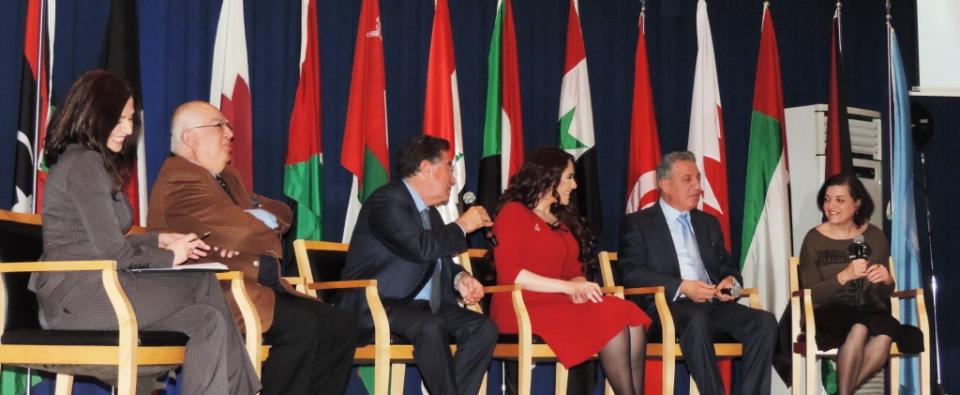
简介:
Mission
ESCWA provides a framework for the formulation and harmonization of sectoral policies for member countries, a platform for congress and coordination, a home for expertise and knowledge, and an information observatory.
ESCWA activities are coordinated with the divisions and main offices of the Headquarters of the United Nations, specialized agencies, and international and regional organizations, including the League of Arab States and its subsidiary bodies, and the Gulf Cooperation Council.
Introduction
The Economic Commission for Western Asia (ECWA) was established on 9 August 1973 pursuant to Economic and Social Council’s resolution 1818 (LV). Its purpose was to stimulate economic activity in member countries, strengthen cooperation between them promote development.
In recognition of the social component of its work, the Commission was renamed the Economic and Social Commission for Western Asia (ESCWA) under Economic and Social Council resolution 69/1985 of July 1985.
ESCWA was initially located in Beirut (1974-1982), moved to Baghdad (1982-1991) and Amman (1991-1997), and subsequently returned to Beirut, its permanent headquarters, where it has remained to this day.
链接:http://gj.ncss.cn/org/XkBZ6xNtLTuaL3tVgUoJ18.html
联合国非洲经济委员会
United Nations Economic Commission for Africa
组织领域:经济金融与贸易总部:Addis Ababa, Ethiopia
组织性质:政府间 是否有驻华办事处:否
官方网站:http://www.uneca.org
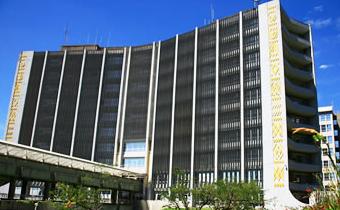
简介:
Mission
Established by the Economic and Social Council (ECOSOC) of the United Nations (UN) in 1958 as one of the UN's five regional commissions, ECA's mandate is to promote the economic and social development of its member States, foster intra-regional integration, and promote international cooperation for Africa's development.
Introduction
Established by the Economic and Social Council (ECOSOC) of the United Nations (UN) in 1958 as one of the UN's five regional commissions, ECA's mandate is to promote the economic and social development of its member States, foster intra-regional integration, and promote international cooperation for Africa's development.
ECA's strength derives from its role as the only UN agency mandated to operate at the regional and subregional levels to harness resources and bring them to bear on Africa's priorities. To enhance its impact, ECA places a special focus on collecting up to date and original regional statistics in order to ground its policy research and advocacy on clear objective evidence; promoting policy consensus; providing meaningful capacity development; and providing advisory services in key thematic fields.
ECA is headed by an Executive Secretary, who is assisted by two Deputy Executive Secretaries. Its work programme is supported by two pillars: knowledge generation and knowledge delivery. There are five substantive divisions responsible for policy research: Macroeconomic Policy, Regional Integration & Trade, Social Policy Development, Special Initiatives, and the African Centre for Statistics. The Capacity Development Division, IDEP (ECA’s training arm), the Division of Administration and ECA’s Subregional Offices in Rabat, Niamey, Yaounde, Kigali and Lusaka comprise the knowledge delivery pillar. Knowledge generation and knowledge delivery at the ECA are underpinned by the Strategic Planning & Operational Quality Division and the Public Information and Knowledge Management Division. The ECA Partnerships Office and the Joint Secretariat Support Office of the ECA, African Union Commission and African Development Bank complement the work of the substantive divisions.
链接:http://gj.ncss.cn/org/647kwrZUBqzH5jG8Y2a6dq.html
联合国教科文组织
United Nations Educational, Scientific and Cultural Organization
组织领域:教育与科技总部:Paris, France
组织性质:政府间 是否有驻华办事处:是
官方网站:http://www.unesco.org/
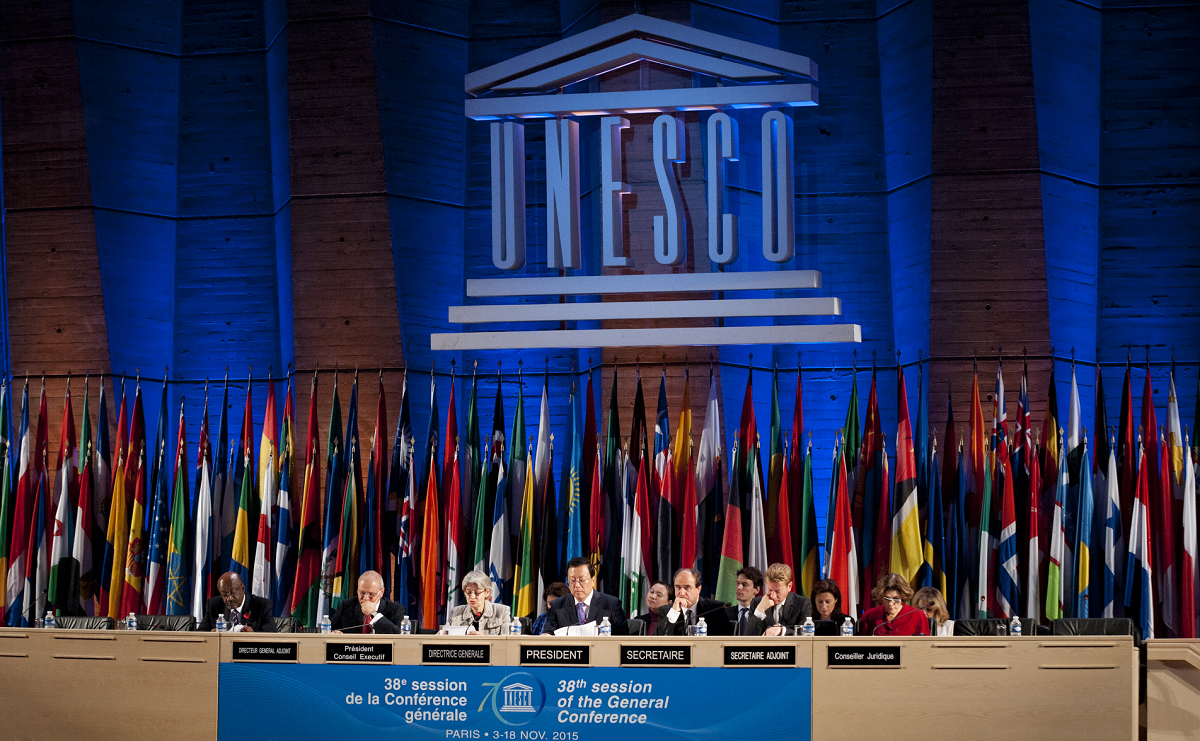
简介:
Mission
UNESCO is responsible for coordinating international cooperation in education, science, culture and communication. It strengthens the ties between nations and societies, and mobilizes the wider public so that each child and citizen:
• has access to quality education; a basic human right and an indispensable prerequisite for sustainable development;
• may grow and live in a cultural environment rich in diversity and dialogue, where heritage serves as a bridge between generations and peoples;
• can fully benefit from scientific advances;
• and can enjoy full freedom of expression; the basis of democracy, development and human dignity.
UNESCO's messages are of increasing importance today, in a globalized world where interconnections and diversity must serve as opportunities to build peace in the minds of men and women.
Introduction
In 1945, UNESCO was created in order to respond to the firm belief of nations, forged by two world wars in less than a generation, that political and economic agreements are not enough to build a lasting peace. Peace must be established on the basis of humanity’s moral and intellectual solidarity.
UNESCO strives to build networks among nations that enable this kind of solidarity, by:
Mobilizing for education: so that every child, boy or girl, has access to quality education as a fundamental human right and as a prerequisite for human development.
Building intercultural understanding: through protection of heritage and support for cultural diversity. UNESCO created the idea of World Heritage to protect sites of outstanding universal value.
Pursuing scientific cooperation: such as early warning systems for tsunamis or trans-boundary water management agreements, to strengthen ties between nations and societies.
Protecting freedom of expression: an essential condition for democracy, development and human dignity.
Today, UNESCO's message has never been more important. We must create holistic policies that are capable of addressing the social, environmental and economic dimensions of sustainable development. This new thinking on sustainable development reaffirms the founding principles of the Organization and enhances its role:
In a globalized world with interconnected societies, intercultural dialogue is vital if we are to live together while acknowledging our diversity.
In an uncertain world, the future of nations depends not only on their economic capital or natural resources, but on their collective ability to understand and anticipate changes in the environment - through education, scientific research and the sharing of knowledge.
In an unstable world - marked by fledgling democratic movements, the emergence of new economic powers and societies weakened by multiple stress factors – the educational, scientific and cultural fabric of societies – along with respect for fundamental rights - guarantees their resilience and stability.
In a connected world - with the emergence of the creative economy and knowledge societies, along with the dominance of the Internet, the full participation of everyone in the new global public space is a prerequisite for peace and development.
UNESCO is known as the 'intellectual' agency of the United Nations. At a time when the world is looking for new ways to build peace and sustainable development, people must rely on the power of intelligence to innovate, expand their horizons and sustain the hope of a new humanism. UNESCO exists to bring this creative intelligence to life; for it is in the minds of men and women that the defences of peace and the conditions for sustainable development must be built.
链接1:http://gj.ncss.cn/org/RsdyurkBPmApHWLrqPoVnC.html
链接2:http://www.csc.edu.cn/chuguo/s/1118
国际劳工组织
International Labour Organization
组织领域:人道保护与社会保障 总部:Geneva, Switzerland
组织性质:政府间 是否有驻华办事处:是
官方网站: http://www.ilo.org/global/lang--en/index.htm

简介:
Mission
The International Labour Organization (ILO) is devoted to promoting social justice and internationally recognized human and labour rights, pursuing its founding mission that social justice is essential to universal and lasting peace.
Introduction
The only tripartite U.N. agency, since 1919 the ILO brings together governments, employers and workers representatives of 187 member States , to set labour standards, develop policies and devise programmes promoting decent work for all women and men.
Underlying the ILO’s work is the importance of cooperation between governments and employers’ and workers’ organizations in fostering social and economic progress.
The ILO aims to ensure that it serves the needs of working women and men by bringing together governments, employers and workers to set labour standards, develop policies and devise programmes. The very structure of the ILO, where workers and employers together have an equal voice with governments in its deliberations, shows social dialogue in action. It ensures that the views of the social partners are closely reflected in ILO labour standards, policies and programmes.
The ILO encourages this tripartism within its constituents - employers , workers and member States , by promoting a social dialogue between trade unions and employers in formulating, and where appropriate, implementing national policy on social, economic, and many other issues.
链接:http://gj.ncss.cn/org/WKocNZv96K5MNwE5pZyk3Y.html
国际货币基金组织
International Monetary Fund
组织领域:经济金融与贸易 总部:Washington, USA
组织性质:政府间 是否有驻华办事处:否
官方网站:http://www.imf.org
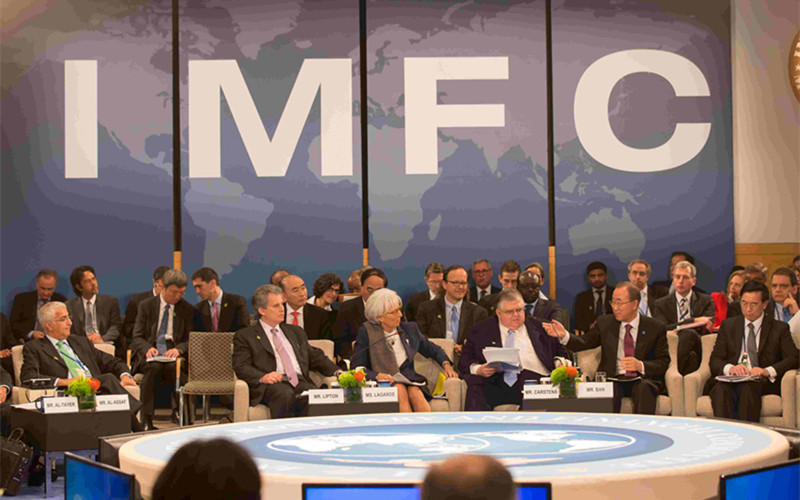
简介:
Mission
The IMF’s fundamental mission is to ensure the stability of the international monetary system. It does so in three ways: keeping track of the global economy and the economies of member countries; lending to countries with balance of payments difficulties; and giving practical help to members.
Introduction
The IMF, also known as the Fund, was conceived at a UN conference in Bretton Woods, New Hampshire, United States, in July 1944. The 44 countries at that conference sought to build a framework for economic cooperation to avoid a repetition of the competitive devaluations that had contributed to the Great Depression of the 1930s.
The IMF's responsibilities
The IMF's primary purpose is to ensure the stability of the international monetary system—the system of exchange rates and international payments that enables countries (and their citizens) to transact with each other. The Fund's mandate was updated in 2012 to include all macroeconomic and financial sector issues that bear on global stability.
链接:http://gj.ncss.cn/org/XaZBzMrtmpFG3tmQeKASQp.html
国际民用航空组织
International Civil Aviation Organization
组织领域:交通与通信总部:Montreal, Canada
组织性质:政府间 是否有驻华办事处:否
官方网站:http://www.icao.int/Pages/default.aspx
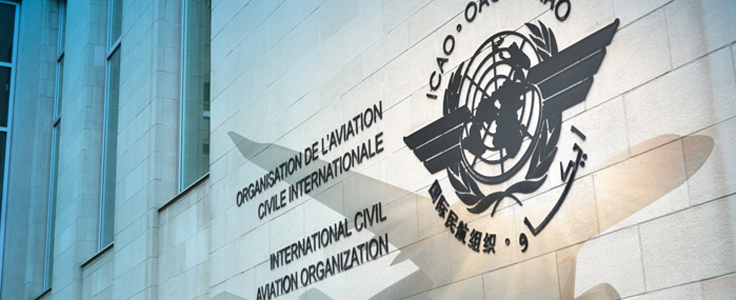
简介:
Vision
Achieve the sustainable growth of the global civil aviation system.
Mission
To serve as the global forum of States for international civil aviation. ICAO develops policies and Standards, undertakes compliance audits, performs studies and analyses, provides assistance and builds aviation capacity through many other activities and the cooperation of its Member States and stakeholders.
Introduction
The International Civil Aviation Organization (ICAO) is a UN specialized agency, established by States in 1944 to manage the administration and governance of the Convention on International Civil Aviation (Chicago Convention).
ICAO works with the Convention’s 191 Member States and industry groups to reach consensus on international civil aviation Standards and Recommended Practices (SARPs) and policies in support of a safe, efficient, secure, economically sustainable and environmentally responsible civil aviation sector. These SARPs and policies are used by ICAO Member States to ensure that their local civil aviation operations and regulations conform to global norms, which in turn permits more than 100,000 daily flights in aviation’s global network to operate safely and reliably in every region of the world.
In addition to its core work resolving consensus-driven international SARPs and policies among its Member States and industry, and among many other priorities and programmes, ICAO also coordinates assistance and capacity building for States in support of numerous aviation development objectives; produces global plans to coordinate multilateral strategic progress for safety and air navigation; monitors and reports on numerous air transport sector performance metrics; and audits States’ civil aviation oversight capabilities in the areas of safety and security.
链接1:http://gj.ncss.cn/org/4mZ3Atf6uFzmHuAu65vj2m.html
链接2:http://www.csc.edu.cn/chuguo/s/1118










